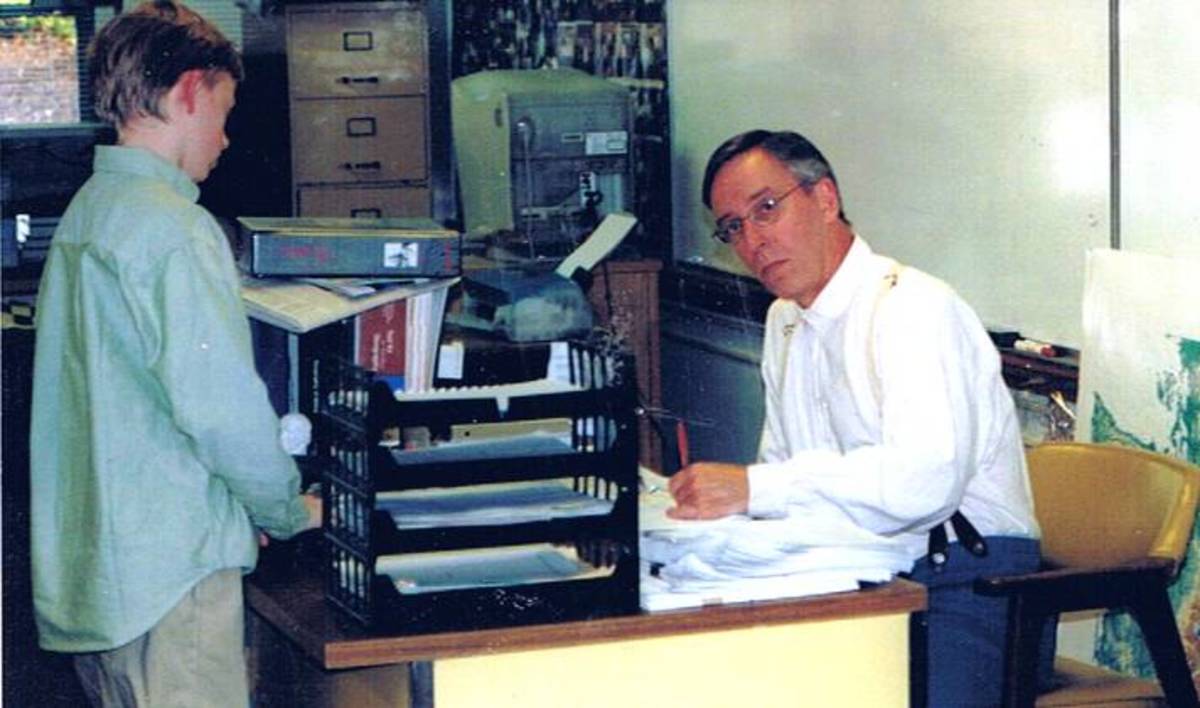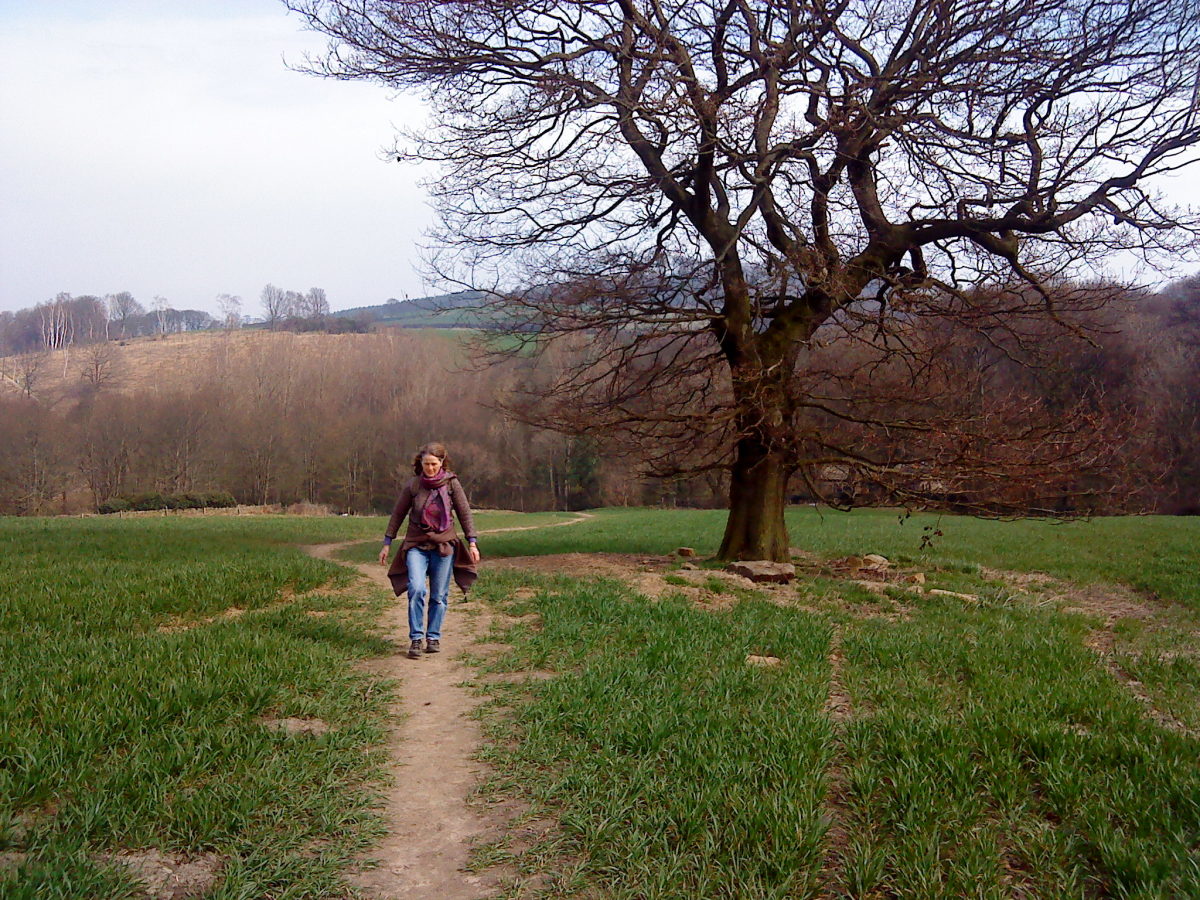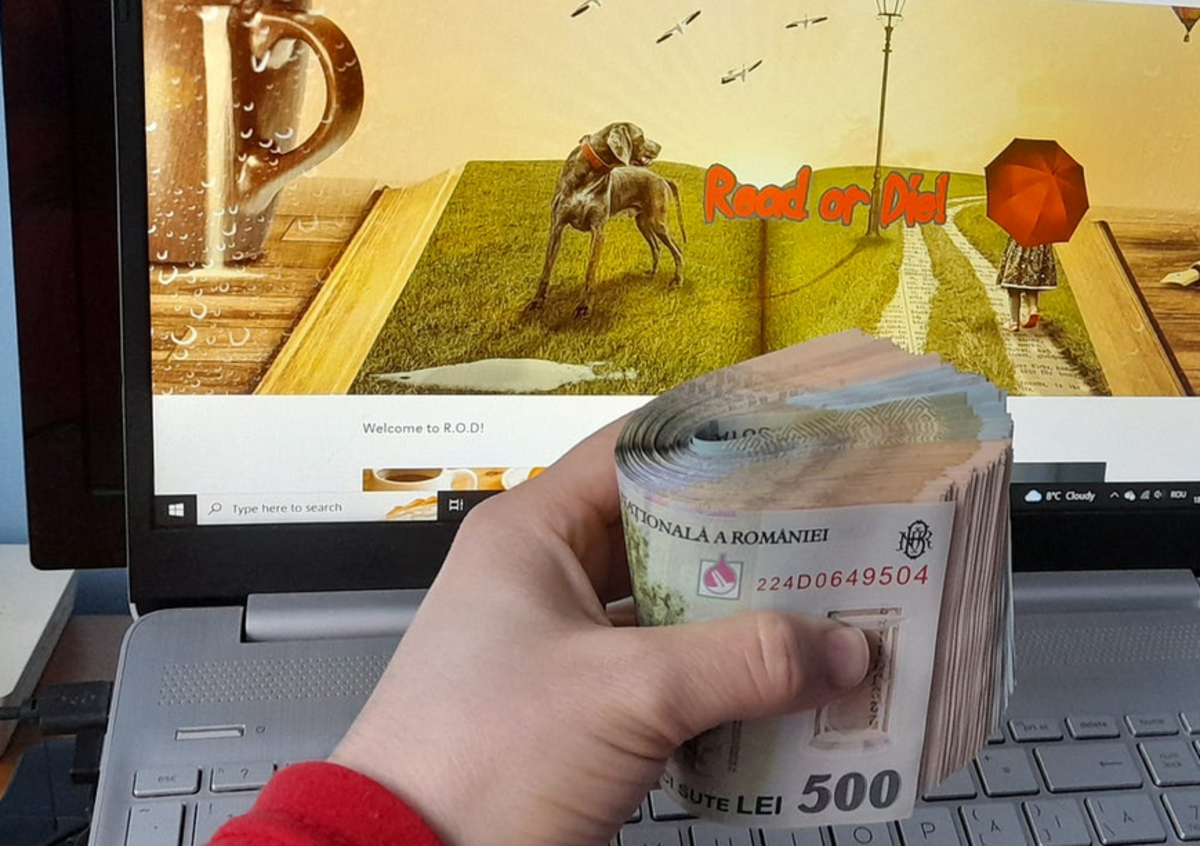50 Thoughts on Writing: Part 5
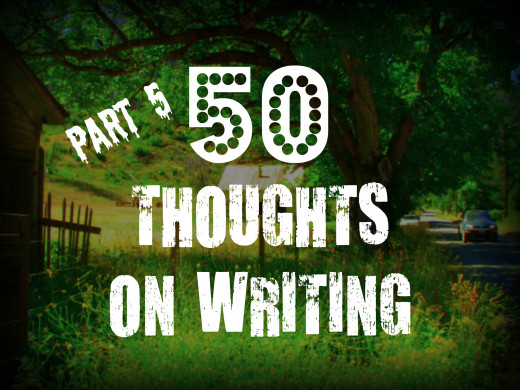
Thank You for Taking this Journey With Me
We have reached the end of our 50 Thoughts on Writing journey, and my goodness it has been a wickedly fun ride. I have poured every ounce of what I have learned and discovered about the craft of writing into this series, and I hope it has sparked something deep within your soul.
Save your $100,000 on a fancy Creative Writing Degree and $2.99 on a How to write e-book and join me as we lay the capstone. If you missed any of the prior segments, they are included below.
Just in case You Missed any of the Series
- 50 Thoughts on Writing: Part 4
Part 4 of 50 Thoughts on Writing. Coming in at 5700 words, consider this a free e-book on the art of writing. - 50 Thoughts on Writing: Part 3
Part 3 of my series on writing. Come one, come all for a free Creative Writing education. - 50 Thoughts on Writing: Part 2
Part 2 of my series on writing. Be inspired to write your best! - 50 Thoughts on Writing: Part 1
50 rapturous thoughts, crumbles of advice, delectable quotes, and rambling ponderings on the craft of writing.
39. Leave it to the imagination.
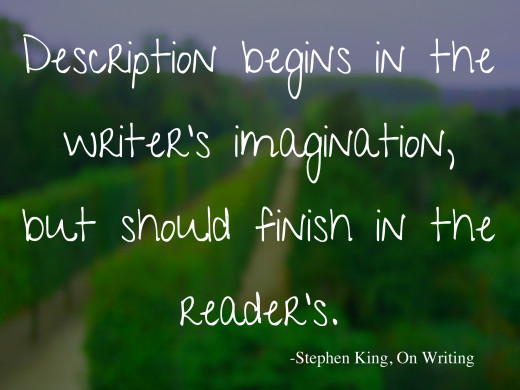
41. Don't be afraid of a little self-deprecating humor.
- Writers Who Died Broke
A humorously morbid look at the tragic economics of writing. - 25 Reasons You Should Marry a Writer
Writers: Need a little humor to brighten your day? Check out why writers make the best spouses. Enjoy, my friends. - You Know You're A Writer When...
A humorous look at the life of a writer.
40. Don't get distracted.
I believe that writers are naturally impulsive people. Our business is in the art of thoughts, and sometimes those thoughts come so quickly we can hardly get them all down. They come like a flood. They keep us up into the wee hours of the morning, begging us to get them all down before the cruel mistress muse bids us farewell.
Even as I am writing this I am distracted by the 3 film scripts, novel, pre-production novel, 4 articles in queue, and 50 other mental cloud hubs I am writing. I often find myself shuffling between projects to avoid a project I am dreading writing the next word for.
You see, I have perfected the art of pretending to be busy, while not really making any steps forward. I can only presume that you have experienced this same issue of distraction. However, maybe your vice is something different: cruising Facebook, watching a movie, getting some exercise, spending a week working on the cover to your book instead of the 120,000 words between the covers. All of those things are beneficial and most of them are really good things—both for your writing career and for your well being. It becomes a problem when you use "good things" to distract you from what you really need to be doing.
42.
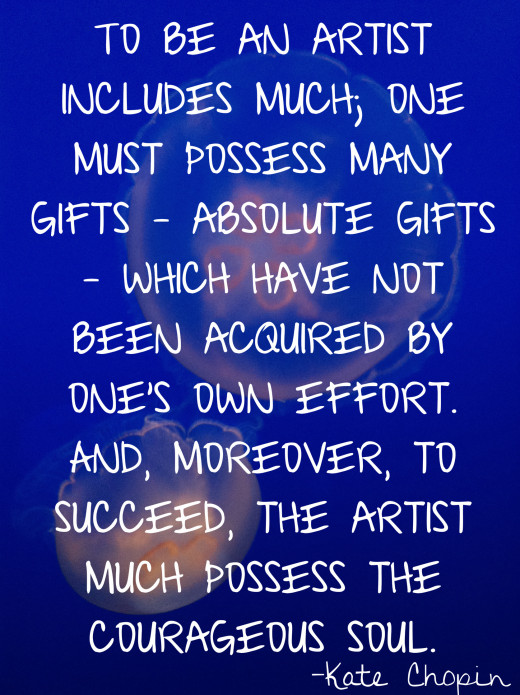
A great gag gift for any writer. It's like getting coal in your stocking, but funnier.
43. Writers block doesn't exist.
I can hear the gasping from Washington to Maine, from my writer friends in Australia to the green hills of Scotland. It's gusty—I know.
Ask any good writer, one who has labored over her craft—and I could assume a large percentage if they were being truthfully honest—would deny the infamous mental brick wall.
I believe that there are a few core reasons for this feeling of mental blockage.
Laziness
Everyone wants the writing chalet in France and $100,000 book deals, but very few writers are willing to put in the effort that such a lifestyle requires. Writing is hard! It's alienating, isolating, and forces you to bare your soul to the world. It's voluntary torture, but it is also deeply satisfying.
Us writers often hold several jobs and write on our lunch breaks, before work, and after the kids are put to bed. The hardest part is that there is no guarantee that our efforts will pay off monetarily.
So where does the blockage come from? It comes from a lack of perseverance. Every writer has wondered what plot point to hit next or has struggled to find the words that seem to be on the tip of his or her tongue. What separates the professionals from the amateurs is the professional's willingness to keep at it, even when it gets difficult.
Distraction
See #40. Seriously though, it is so easy to get distracted. You should watch me work; sometimes I hardly get a sentence out before I jump out of my seat and convince myself that I need a walk, a snack, or I must do my laundry.
Resist the urge! Often you don't really need to do those things, you're just looking for an excuse not to write.
Fear
Fear is a writer's worst enemy. She seems to strike out of nowhere—and with unnerving force. Every writer deals with fear and doubt, but it is how he deals with it that makes all of the difference. You must learn to push past the fear. Even the greats, who sell millions of books a year, struggle with wondering if their story will be effective. Writing is a giant act of faith; you write thousands of word without ever knowing if they will be well received.
44. And by the way, everything in life is writable about if you have the outgoing guts to do it, and the imagination to improvise. The worst enemy to creativity is self-doubt.
— Sylvia Plath45. Writing is about what you leave behind.
Writing is a funny thing because it gives you immediate gratification, but rarely do you get to see an audience's response to your work. By the time your readers feast on your work, you've changed and the world has changed—your words are a ghost, lingering in the warm flicker of a bedside light or the harsh flashing light of a window seat on a commuter train.
46. You write by faith.
If you are a writer who has stuck it out year after year and rejection letter after rejection letter, I commend you. In some ways I envy and even admire you. It's a tough thing, not only do our family and peers, more often than not, don't understand us, we have to deal with the criticism and rejection of our readers.
Writing is like working towards retirement, you work really hard for a specific goal that may or may not happen. Knowing the uncertainty involved, you put money in your IRA every month—knowing that you might die of cancer before the legal payout, or social security will indeed implode, and you'll have to work into your eighties anyway. Give me a break, I'm in my twenties and I'm shaking in my boots because I already know that I will have to work until I die. You baby boomers better be enjoying all the money we're sending you! The point is, the opportunity for reward outweighs the propensity towards failure, so write like there is no tomorrow.
You slave away, spending thousands of hours on a manuscript, not knowing if it will wilt away and be eaten my moths in the back of your sweater closet. The opportunity to reach into a reader's soul, to leave behind something for prosperity, to discover truth in the best way you know how, to discover how deep your rabbit hole goes, and to live the life of a writer—that propels you forward one word at a time.
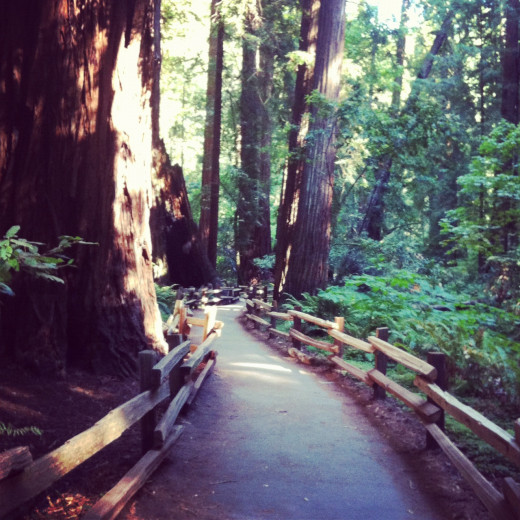
47. As a Writer, you are a historian.
What we know about the past is almost entirely from preserved written language. Many of the cultures we know very little about are the ones that were later to the game in terms of creating a written language. Sure, there is a place for archaeology and anthropology, but most of what we know of the past was because someone took the time to preserve it for us through their written language.
What a privilege it is to be a writer! We can know some of what went on in the past from things like the material a stone jar is made out of. Maybe it is made of organic materials that are non-native to the area, which presumes that the culture traded elsewhere. Clay found in a pot in China might only originatye in the Nile river, suggesting that there was an ancient trading market between China and Egypt. That's cool, right? What what if a Chinese Prince leaves behind a memoir about being mistaken as a peasant and enslaved to the Egyptians, escaping back to China, then courting the daughter of the Egyptian Pharaoh and bringing her back to rule in his palace. Her father, the Pharaoh, and his former master, sends a dowry of expensive jars full of gold and spices to China. Hence the Egyptian clay pot in China.
I just made that up, but you can see how written language can reveal so much more of a culture and its customs than mere archaeological speculation. Can you imagine if the Declaration of Independence wasn't written down, but merely a verbal contract? You've seen how far politicians can skew the written word to their advantage—now imagine what they could do if there was no document. Imagine a world without the written Bible, The Iliad, or any Shakespeare.
We do not currently have the technology for time travel, nor do I think we ever will, but through reading, one can be transported back in time and feel the same things as someone of that period. Two souls can connect across a span of millennia—how cool is that!
After reading the writings of C.S Lewis, Ben Franklin, or Voltaire, I can feel like I just sat down for tea with them. It is weird to think that those who are speaking to me are dead—their bones are rotting in the ground, yet they are still speaking.
You, dear reader, have that same opportunity to leave behind words for the next generation and for the generations to come. Do not take that responsibility lightly! That is why it is a noble job to write the world as we see it, in the most honest way, because our words may determine how the future sees the past.

48. Let your writing be timeless.
The desire for love, for freedom, to give the best of ourselves to our children, to be immortal, and to explore are all timeless desires of almost everyone who has walked the planet. We may differ on political or religious ideologies, we may wear clothes made of differently spun fibers, or eat things that others find repulsive, but at our core we are all the same.
Your job as a writer is to find that common thread of humanity and harness it to tell a story that transcends every human institution.
As humans, I believe that we all want basically the same things. We all feel loneliness, hunger, and fatigue. We all bleed red when we're cut. Along the way we have created languages, art, cuisine, and religions that differ, but the world's greatest truth is that our similarities outweigh our differences.
As a writer, tap into the universalism of what I believe is the human soul. Dig down deep and find that hidden gem, the one found in a mud hut in Africa and in a penthouse on 5th Avenue.
It's that common thread that makes launching a thousand ships, in the name of love, not absurd in the slightest. If you base your writing on core human instinct, desire, and emotion, your writing will remain timeless, regardless of if the humans of the future are reading your work or downloading it into their super-sonic brains.
49. Take it Bird by Bird.
If you haven't read Bird by Bird, have you been hiding in a hole? Stay in the writing world long enough and you will see its importance and relevance to the art of writing. It is to Creative Writing what the Elements of Style is to English 100 at any University. Can I be so bold to say that it should be required reading for every career writer? There, I said it!
If I could point to one book that has influenced my writing, Bird by Bird would be it. Do whatever you have to, to get a copy. Go to the library, find it at a garage sale, download the e-book, or borrow it from a writer friend. I keep a copy of it in my nightstand and refer to it often. I also quote Anne Lamott more than any other writer on the planet.
The Meaning of "Bird by Bird"
The title of the book comes from a school project she did as a young school kid. She had waited until the last minute to do a report on birds and had to go through hundreds of them the night before it was due. She broke down, overwhelmed at the task ahead. She saw no way out of it. There just wasn't enough time left and the task looked too daunting to start.
Her father stepped in and coached her on how to finish. He told her to not think of it as hundreds of birds, but to go "Bird by Bird." By concentrating on each small task as she reached it, Anne was able to finish the project, turn it it, and not fail the class.
As a writer, stop looking at the enormous mountain ahead of you. Instead, focus on the scene you are in right now. Maybe fine tune it down to the next sentence or even the next word choice. As you put one word in front of another, you will soon have sentences, then paragraphs, then pages, then chapters, then books, then trilogies, then series. Pulling off Nora Roberts' 200 novels in a writing career look as difficult as building a rocket to the moon, so don't overload yourself with that grand of a picture. Start small—I promise that someday you will look back and all of your small steps, and they will have taken you up a mountain.
50. I want the best for you. I want you to excel.
I intended for this series to be only one hub that was composed of cute writing quotes, one-sentence takeaways, and fun writing videos. However, after writing down my first 5 ideas, I quickly discovered that one sentence per idea wasn't enough, let alone one hub to hold it all.
I didn't want to cheat you. I wanted to give you the best I could give, to leave you with something that would inspire you and create lasting change in your writing. I wanted to tell you everything I know about this wonderful craft that I love—the truth is, it is a topic that could go on for volumes and whole lifetimes.
Would you like to know why 2 Timothy is my favorite book of the Bible? Because it is the passionate last words of a dying man. It's his last will, his last testament, his last warning, his last admonition.
There is nothing more sincere or poignant than a man's last words. It is the loving encouragement of a father passing on critical information to his beloved spiritual son. There is no time for the lengthy, heady theological language of Romans. Paul knows that he will soon be "poured out like a drink offering" and he's got one last letter to tell the church, for all generations, everything they need to know. He's like a sniper taking the critical shot that wins the war: he's got one trigger pull to hit the target.
He's seen the future and what is to come upon the church and he wants to leave Timothy with the spiritual arsenal needed to fight the good fight of faith, to endure persecution, to not be deceived by fleeting trends, to read the signs of the times, and to not give in to worldly passions.
That is my wish for you. Having had experience in this field, I know what doubt, fear, and turmoil you will face as a Writer. I also know the beauty of what lies ahead—what gems you will uncover and to the heights of which you can fly.
I know that the world can be cruel and that by following the truth you may end up in a dark forest, unable to see the light. There is real evil in the world and there are things that happen that are unspeakable. Your job as a writer is to find the truth and set the captive free—and to speak for those who cannot speak for themselves.
You can end slavery with your words, you can fight child trafficking with the letters you type, with a camera phone and a blog you can overthrow murderous dictators.
Do you ever wonder why those whose words were most powerful throughout history, were also on the martyred list? Think about it. Consider all who died because they said something everyone else was too cowardly to say: Lincoln, JFK, Martin Luther King Jr, Joan of Arc, William Tyndale. Words are powerful. Words are weapons—and if you speak into the face of evil, prepare to fight a war.
Count your cost well, my friends, because the world's most powerful words have always been written in blood. Are you going to tell the story of the Lost Boys of Sudan, or the orphans of Haiti, or the street kids of Brooklyn, or of the children stolen from their homes and forced into a life of horrendous conditions in a filthy factory? Will you speak for the women of Afghanistan or the families whose husbands, wives, fathers, mothers, daughters, and sons, returned home from war in a wooden box covered in a flag? For the single mothers? For the heroine addicts? For the father trying to work his way off of welfare? Who will speak for them?
If you are a Writer, I believe you know in your heart that you cannot be silent. You have been given a gift, but it is also a burden. I hope what I have written will help you carry it.
As writers you do not go gently into that good night. No, you use your words to rage, rage against the darkness and the dying of the light.
For I am already being poured out like a drink offering, and the time for my departure is near. I have fought the good fight, I have finished the race, I have kept the faith.
— 2 TIm. 4:7, NIV




